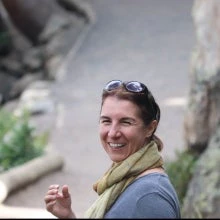 New Podcast series by World Bank
New Podcast series by World Bank
A Series of Natural Disasters
In August 2018 a devastating cloudburst brought unprecedented rain to the state of Kerala in southern India. Keralites love to romanticize the tropical monsoons. When it starts pouring, they say, everything is verdant and musical. But the monsoons of 2018 were anything but musical. The worst flood in nearly a century impacted almost 5.4 million people - one-sixth of the state’s population. Some 483 people lost their lives. Critical infrastructure was decimated with over 10,000 kilometers of roads torn up and thousands of homes destroyed. For the first time, all of the state’s 42 dams were opened simultaneously.
Read: Kerala's women dam engineers talk about their experience of the flood of 2018
In August 2019 the rains came back with similar fury and force. For two consecutive years, Kerala faced extraordinary floods that led to widespread loss of life, property, and habitats. And then in 2020 the state’s resilience was tested again as Kerala found itself on the forefront of India’s battle with COVID-19.
But this is not a story of destruction. This story is one of tenacity and perseverance. Despite the magnitude of the rebuilding effort before it, Kerala has approached this turbulent period with immense strength, seeing the opportunity to accelerate long-pending policy and institutional reforms to address the drivers of natural disasters, climate change, and pandemic risks. The state is reevaluating its development trajectory and its history of planning policies to rebuild a new Kerala, a Nava Keralam .
A Partnership to Build Resilience
The main entry points for creating resilience —emblematically—follow the journey of the river, starting from basins and reservoirs upstream, to cities and towns midstream, through to farms and livelihoods downstream. The World Bank’s approach to addressing the underlying drivers of floods and landslides, therefore, follows the same course: upstream, through integrated water resources management; midstream, through improved land use planning, infrastructure and services; and downstream, through ecologically sound agriculture and irrigation practices.
This requires systemically building the state’s capability to carry out an integrated and coordinated set of policy, institutional, and budgetary changes. Such reforms demand political will, institutional capacities, public support, and a continuous and iterative change process –all of which is only possible due to the Government of Kerala’s (GOK) leadership and vision.
The World Bank-supported First Resilient Kerala Program set in motion some of these fundamental reforms needed for deeper resilience and informed GoK’s recovery efforts as well as their Rebuild Kerala Development Program roadmap. The groundwork laid during this first program improved GoK’s capacity to assess and respond to disasters, and subsequently played a valuable role in enhancing its readiness for the pandemic.
Kerala’s response to COVID-19 was rapid, efficient, and effective. It quickly put in place emergency procedures and a response package including safety nets, service delivery, and community coping mechanisms . Its success in “flattening the curve” was lauded globally. The ongoing preparation of The Second Resilient Kerala Development Policy Operation aims to further deepen the reforms of the first World Bank program.
Historically in India, the World Bank has supported disaster recovery operations that address the infrastructure needs of the sectors most critically affected . Drawing from previous successes such as the comprehensive disaster mitigation efforts led by the Government of Odisha, the Kerala Engagement represented a departure from the historical approach, focusing instead on holistically analyzing and addressing structural issues impeding resilience.
A 60 plus member multi-sectoral Bank team leveraged strong collaboration across disciplines such as Macro-fiscal, Disaster Risk Management, Urban Development, Social Protection, Water, Transport, Agriculture, Land, Environment, Climate change, Social, and Fisheries. The depth of commitment and teamwork with GoK since 2018 has led to a close and highly productive working relationship with the state that in turn has been the foundation for establishing India’s first State Partnership.
Read about the World Bank's response to the COVID-19 outbreak in India
Kerala has approached this turbulent period with immense strength, seeing the opportunity to accelerate long-pending policy and institutional reforms to address the drivers of natural disasters, climate change, and pandemic risks.
Tune in for more!
The Kaalavastha podcast series aims to capture some of the stories behind how one state is building a more resilient future for itself . Through a series of 6 episodes, we dive deep into God’s Own Country, following multiple protagonists on this journey, and getting a behind-the-scenes perspective from the communities, government, scientists, diaspora, World Bank staff, and even the cultural voice of Kerala itself!
The episodes will introduce listeners to the history of Kerala’s relationship with its environment and the climate, delve into the role geography and landscape played in the two flood events, witness the immense community-driven response, see new government enterprises like the Rebuild Kerala Initiative rise to the task, get into the weeds of some of the larger resilience reforms such as in river management and remittances, look at how one actually implements such overhauls of existing systems, hear how impacted local livelihoods are building back better, and then finally end with a retrospective on disaster response and decentralization in the case of the floods and the pandemic.
Kaalavastha will be releasing episodes bi-weekly. Listen to the trailer below and subscribe now, wherever you get your podcasts!
Ways to Engage Further:
- Be a part of the solution. We’re looking for innovative tech solutions to help meet urgent disaster response, resilience, and COVID-19 needs in Kerala and other Indian states
- World Bank Commits Support to Rebuild a More Resilient Kerala
- Know more about Lighthouse India here



Join the Conversation